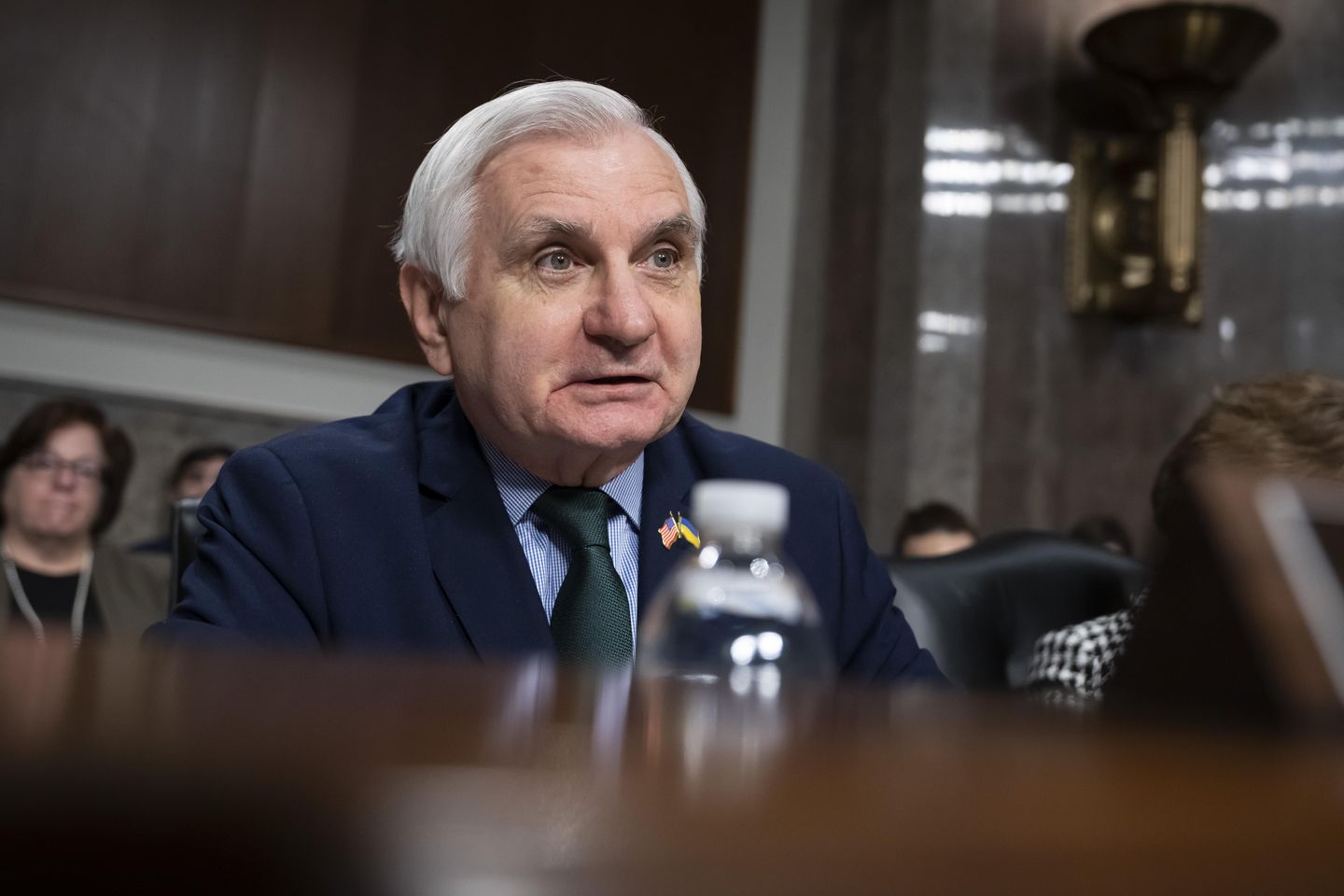
The top Democrat on the Senate Armed Services Committee accused the Trump administration of “looking backwards, not forwards” as America faces threats from China, Russia and Iran while grappling with India-Pakistan violence.
On Wednesday, Sen. Jack Reed of Rhode Island told the Washington-based Defense Writers Group that the White House is alienating allies and embracing adversaries with policies that don’t seem to have been properly vetted.
“This makes the world a lot more complicated and much more difficult for us to maneuver in,” he said.
Mr. Reed also criticized what he said was the Trump administration’s apparent animosity toward top military and civilian leadership inside the Defense Department. America’s greatest national security assets aren’t warships and combat aircraft, but its people, he said.
“They are some of the most talented and experienced individuals in the organization. When they go, there’s a gap,” the senator said. “Many of these people are part of our technological power. We’re facing China right now in a digital competition. They’re certainly not slacking off in their investments in technology and expertise and knowledge and training.”
Defense Secretary Pete Hegseth has ordered a reduction in high-ranking military officers. He wants the Pentagon to cut 20% of its four-star generals and admirals and 10% of general and flag officer positions across the active-duty military.
Mr. Hegseth has said the cuts are necessary to streamline leadership ranks inside a bloated Pentagon.
Yet Mr. Reed said, “They don’t do it for the money. They do it for a sense of duty and service.”
He said lawmakers weren’t shown any kind of analysis explaining which Pentagon employees would be fired.
“It was just ’Fire as many people as you can.’ They gave them a quota, I guess,” Mr. Reed said.
He also criticized Mr. Hegseth’s role in the Signal security breach. The secretary insisted that no military secrets were mentioned on the chat.
“Had a junior officer done that, he or she would have been routinely disciplined and probably fired,” Mr. Reed said. “This is sending a double message to the troops.”
The Pentagon sent combat and aviation teams to the southern border in what appears to be an administration plan to “normalize” the use of the armed forces in a domestic law enforcement role, Mr. Reed said.
“Their role is to assist civilian authorities through technical means or logistics support — not law enforcement,” he said. “He is pushing that boundary very, very severely.”
The administration is surrendering a lot of the international leverage it once held, and Ukraine is a good example of that, Mr. Reed said. He accused Vice President J.D. Vance of chatting up right-wing politicians in Germany while ignoring officials in Berlin.
Mr. Reed said of the president, “He’s trying to patch together a ceasefire [in Ukraine], but he’s eliminated a lot of the leverage and demonstrated poor diplomacy.”
The administration isn’t placing serious military or economic pressure on Moscow to convince the Kremlin to end the fighting in Ukraine. Russian President Vladimir Putin believes he can just wait out the West — especially the United States — until the world moves on to another crisis, the senator said.
He said a large assistance package to Ukraine “would send a very strong signal that we are committed to them. I think it would be accepted with great enthusiasm by many of my colleagues on both sides of the aisle.”












